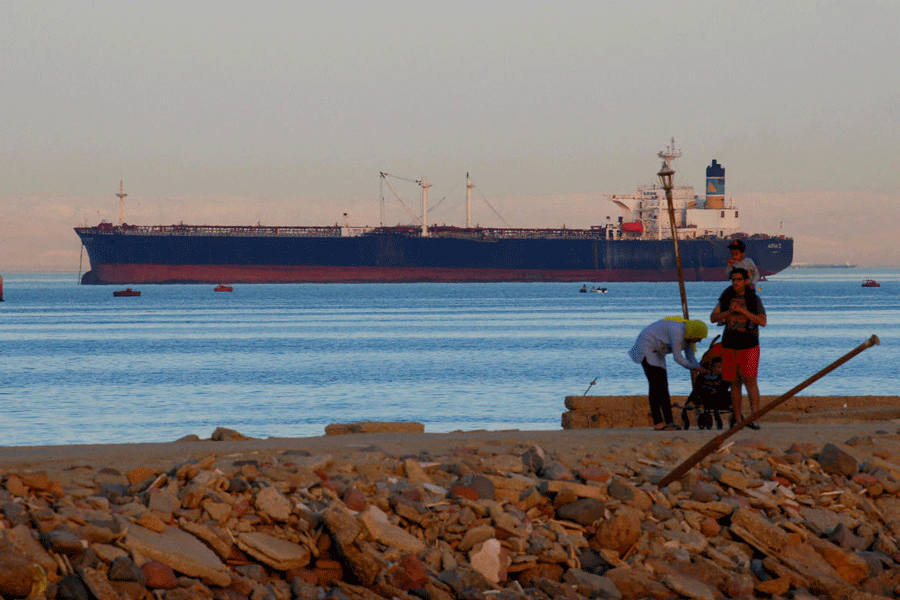Qatar’s state energy company has suspended liquefied natural gas (LNG) shipments via the Red Sea after US-led strikes against Houthi militants in Yemen, joining other firms pulling back from the crucial trade route.
Attacks on ships by the Houthis, who say they are acting in solidarity with Palestinians, have disrupted global commerce and alarmed major powers in a regional escalation of Israel’s more than three-month war with Hamas militants in Gaza.
Like a slew of other companies, the world’s second largest LNG exporter QatarEnergy has now held back at least four LNG tankers from the Red Sea, a senior source said, adding that production continues.
That followed dozens of US and British strikes on the Houthis in Yemen. They have been at war with a Saudi-led coalition for years, but have also turned their sights on the sea next to them as a way to put pressure on Israel.
In the latest action, the US military said late on Sunday that its fighter aircraft shot down an anti-ship cruise missile fired by the militants toward a US destroyer. No injuries or damage were reported, it said in a statement on X.
With some supply lines affected by the instability, carmaker Suzuki said production would be halted at its Esztergom plant in Hungary from January 15-21 as the Red Sea attacks had delayed the arrival of Japanese-made engines.
The Houthis have vowed to keep targeting Israel-linked ships and to give a firm response to the attacks on them.
US ally Britain said it had no desire to be involved in the Red Sea conflict but was committed to protecting free navigation. “Let’s wait and see what happens,” defence secretary Grant Shapps told Sky News regarding potential further strikes.
China, too, is worried about the implications for its major commercial interests along the Suez Canal.
‘Security advice’
LSEG ship tracking data showed that Qatar’s Al Ghariya, Al Huwaila and Al Nuaman vessels had loaded LNG at Ras Laffan and were heading to the Suez Canal before stopping off in Oman on Sunday. The Al Rekayyat, which was sailing back to Qatar, stopped along its route on Saturday in the Red Sea.
“It is a pause to get security advice, if passing (through the) Red Sea remains unsafe we will go via the Cape,” the source told Reuters on Monday regarding QatarEnergy. The longer route around Africa’s Cape of Good Hope can add about nine days to the normally 18-day trip to Europe.
US vessel struck
Jerusalem: A missile fired from Yemen struck a US-owned ship just off the coast of Yemen in the Gulf of Aden, less than a day after Yemen’s Houthi rebels fired an anti-ship cruise missile toward an American destroyer in the Red Sea, officials said.
Suspicion immediately fell on the Iranian-backed Houthis, though the rebels did not immediately acknowledge carrying out the assault on the Gibraltar Eagle. It marked the latest attack roiling global shipping amid Israel’s war with Hamas in the Gaza Strip.
The Houthis have targeted that crucial corridor linking Asian and West Asian energy and cargo shipments to the Suez Canal onwards to Europe over the war, attacks that threaten to widen that conflict.
The UK Maritime Trade Operations, which oversees West Asian waters, said Monday’s attack happened some 177 km southeast of Aden. It said the ship’s captain reported that the “port side of vessel hit from above by a missile”. Private security firms said the vessel was the Eagle Gibraltar, a Marshall Islands-flagged bulk carrier.
AP/PTI










